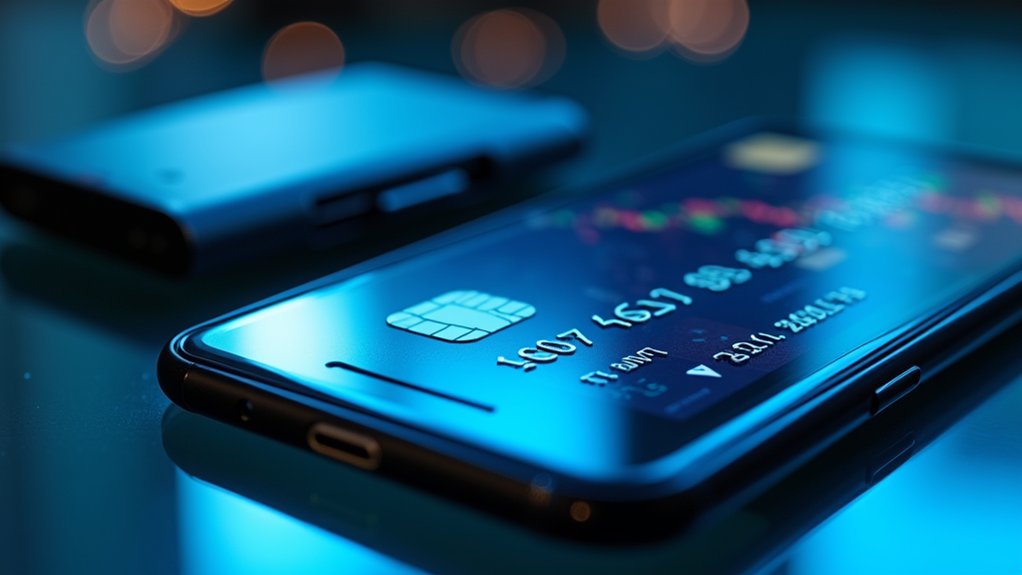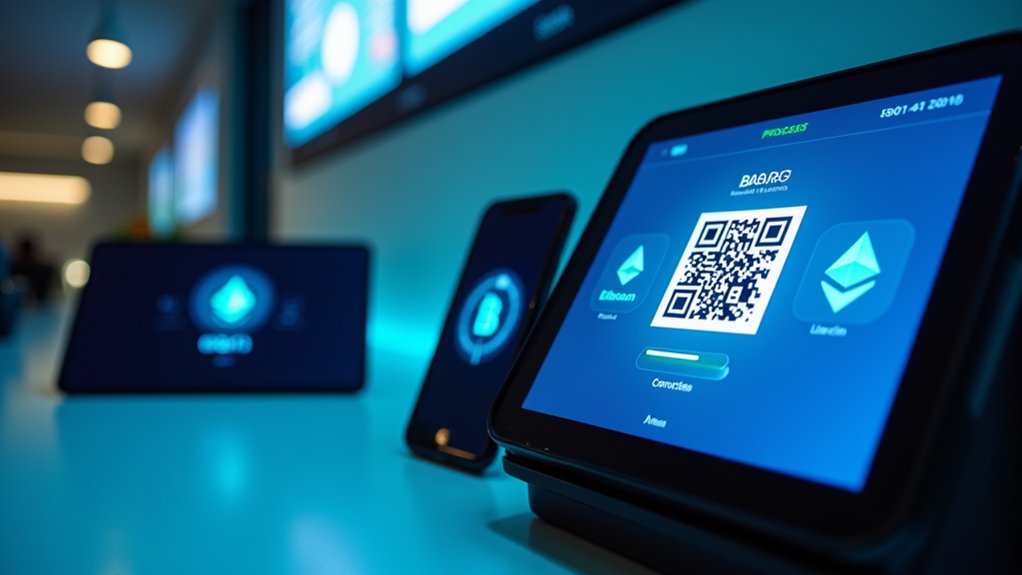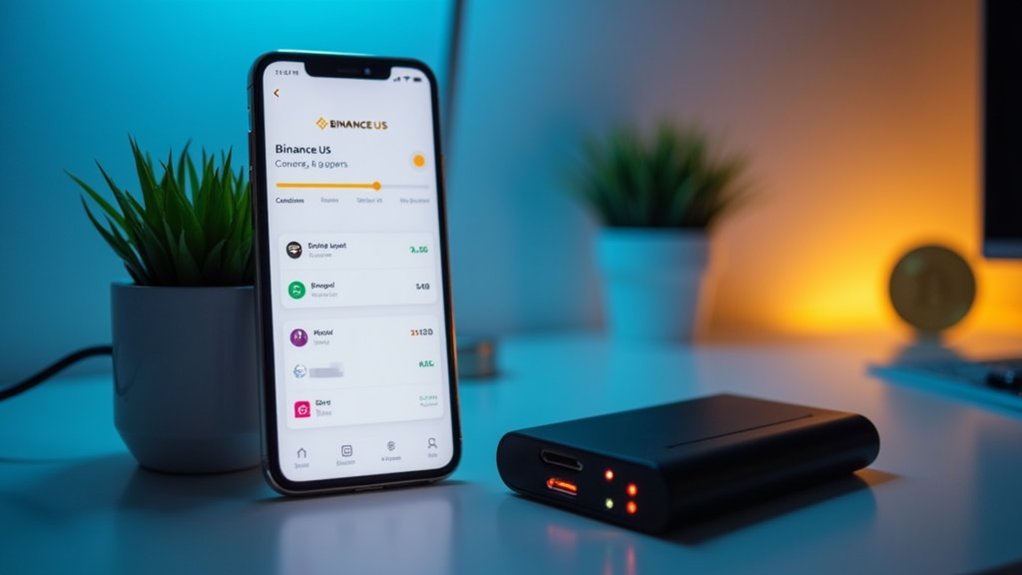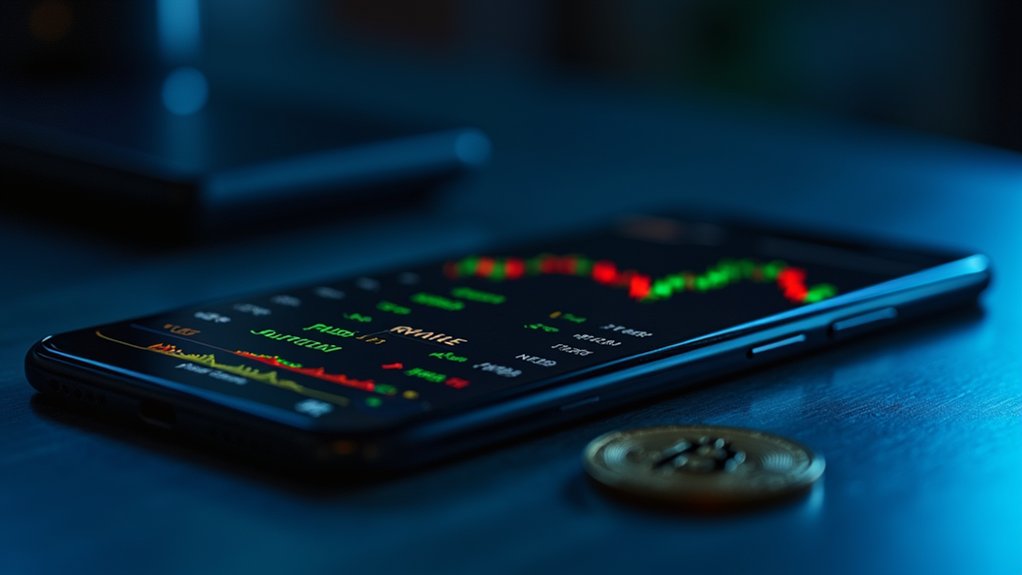Purchasing cryptocurrency with a credit card involves selecting a compliant exchange like Binance, KuCoin, or MoonPay that accepts major card networks including Visa, Mastercard, and American Express. Users must complete mandatory KYC verification by providing identification documents before initiating transactions that typically range from $50 to $20,000. While convenient, credit card purchases often incur premium processing fees and may be classified in the same way as cash advances by card issuers. The following sections explore essential security considerations and cost-effective alternatives for crypto acquisition.

With the cryptocurrency market continues to develop, purchasing digital assets with credit cards has become increasingly accessible for investors who seek convenient entry points into the crypto ecosystem. Financial institutions and cryptocurrency platforms have collectively expanded payment infrastructures to accommodate various transaction methods, with Visa and Mastercard credit and debit cards emerging like the predominant payment instruments across most major exchanges. These payment networks provide the foundational infrastructure through which millions of consumers worldwide can convert fiat currency into digital assets with relative ease and minimal friction.
Several cryptocurrency exchanges have incorporated robust credit card processing capabilities to facilitate immediate purchases. Notable platforms in this category include Binance, Kucoin, CoinGate, MoonPay, and Ramp Network, all of which maintain compliance with relevant financial regulations while offering streamlined transaction processes. Most platforms allow transactions ranging from $50 to $20,000 to accommodate various investor needs. Investors should complete KYC requirements by providing personal information such as full name, identification, and proof of address before making purchases.
American Express cardholders, who historically faced limitations in crypto transactions, now have access through specialized platforms like BitPay and MoonPay, though availability remains more restricted compared to Visa and Mastercard offerings. Maestro debit cards, while technically not credit instruments, provide alternative access points through services like MoonPay for users preferring debit-based transactions.
The incorporation of contemporary payment technologies extends beyond traditional card networks, with Apple Pay and Google Pay now supported by numerous cryptocurrency platforms, enabling mobile-based transactions that utilize existing security protocols. Banking infrastructure connections, particularly direct transfers, complement card-based purchases by offering lower fees despite typically longer processing timeframes.
Regional payment networks further diversify access options, with the Single Euro Payments Area (SEPA) serving European Union residents and Faster Payments providing optimized transaction capabilities for United Kingdom users. Many platforms also emphasize the importance of transferring purchased cryptocurrency to personal wallets for enhanced security and control over digital assets.
While credit card purchases offer immediacy and convenience, prospective investors should note that these transactions often incur premium processing fees compared to bank transfers. Additionally, some card issuers may classify cryptocurrency purchases as cash advances, potentially triggering higher interest rates and immediate interest accrual without grace periods typically associated with standard purchases.
These financial considerations warrant careful evaluation when selecting payment methods for cryptocurrency acquisition.
Frequently Asked Questions
Can Credit Card Crypto Purchases Affect My Credit Score?
Credit card crypto purchases can greatly impact credit scores through multiple mechanisms.
High-value transactions increase credit utilization ratios, potentially exceeding the recommended 30% threshold, which negatively affects scoring models.
In addition, many issuers classify crypto purchases as cash advances, triggering immediate interest charges and unfavorable risk assessments.
Payment difficulties arising from unsuccessful crypto investments may lead to delinquencies, collections, or defaults—severe credit profile damages that can persist for seven years.
Are There Withdrawal Limits When Buying Crypto With Credit Cards?
Cryptocurrency purchases made via credit cards typically come with considerable withdrawal restrictions, including mandatory holding periods of up to 72 hours, implemented by Kraken to mitigate chargeback risks.
Daily withdrawal limits vary greatly between exchanges, with providers like Okcoin enforcing separate caps across all payment methods, while maintaining zero limits on crypto-to-crypto trading activities once funds are deposited.
Many financial institutions, including Nationwide, prohibit credit card usage entirely for cryptocurrency acquisitions.
How Long Do Credit Card Crypto Transactions Typically Take to Process?
Credit card crypto transactions typically receive instant approval, though complete processing involves multiple stages.
While initial authorization occurs within minutes, blockchain confirmations vary greatly by network—ranging from seconds for Cosmos to 1-6 hours for Bitcoin.
Network congestion, fee levels, and platform-specific verification procedures may extend processing times.
During high volatility periods, transactions with standard fees might experience delays, particularly when verification checks trigger additional security protocols.
Will My Bank Flag Crypto Purchases as Suspicious Activity?
Financial institutions routinely flag cryptocurrency purchases in the role of suspicious activity, particularly when transactions exhibit unusual patterns.
Banks employ automated monitoring systems that identify crypto-related merchant category codes, large transaction amounts, or multiple rapid purchases. Customers may experience temporary holds, verification calls, or declined transactions based on their banking history, transaction frequency, and institutional risk policies.
Some issuers have implemented outright prohibitions on crypto purchases due to chargeback concerns, fraud potential, and market volatility risks.
Can I Earn Credit Card Rewards Points on Cryptocurrency Purchases?
Most credit card issuers classify cryptocurrency purchases like cash advances rather than standard purchases, typically disqualifying them from rewards points accrual.
When transactions occur through exchanges like Binance or KuCoin, the 3.5-5% transaction fees further diminish potential benefits.
However, dedicated crypto reward cards, like the Gemini Credit Card offering up to 4% back in cryptocurrency on specific categories, provide alternative methods for consumers seeking to accumulate digital assets through regular spending patterns.









